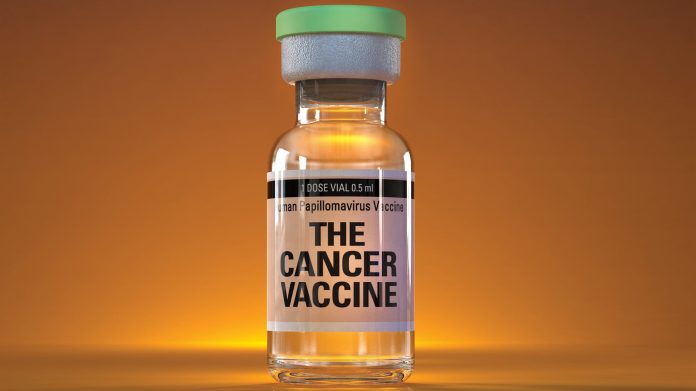In a groundbreaking development, the National Health Service (NHS) has treated its first patient in England with a personalized mRNA vaccine against bowel cancer. This marks a significant step forward in the fight against cancer, as this cutting-edge technology aims to harness the body’s immune system to prevent the recurrence of the disease.
To gain insights into this pioneering treatment, our special correspondent Sabita Mishra spoke with Dr. Nilanshu Das, a biologist and a researcher from Kolkata who shed light on the potential of these personalized cancer vaccines and how they differ from traditional therapies.
Sabita Mishra: How do personalized mRNA cancer vaccines differ from traditional cancer treatments like chemotherapy or radiation?
Dr. Nilanshu Das : Terminal cancer patients subjected to new clinical trials has been in practice for more than three decades. In the case of Elliot Pfebve (England) for the first time mRNA vaccine targeted against particular cancer-causing mutations has been used. mRNA vaccine is a new technology of vaccine which has been proved to be effective during covid. It is markedly different from the traditional cancer treatment like chemotherapy and radiotherapy as those treatments were generalized and not individual or more precisely, mutation specific. Pharmacogenomics or treatment according to the genetic makeup (mutation profiling) of an individual will be the future treatment modality not only for cancer but also for almost all diseases.
Sabita Mishra: In the Elliot Pfebve case, they used the patient’s tumor to identify specific mutations. How accurately can these mutations be identified, and how does this precision improve treatment?
Dr Nilanshu Das: With present day high fidelity sequencing technique mutations can be detected with 100% accuracy. There is no debate about that. However this does not ensure that precisely knowing few mutations of a particular cancer patient treatment would be absolutely accurate. Onset and progression of cancers are multi factorial and for most of the cancers all the criteria are not well understood. It is rightly said that each cancer is an institution by itself. Of course, efficacy of cancer treatment has improved a lot over last 10 years, but more research is needed to attend precision in cancer treatment.

Sabita Mishra : How does a patient’s overall immune health affect the potential success of a cancer vaccine?
Dr. Nilanshu Das : Cancer vaccine, like all other vaccines rely on the host (the individual who is suffering from cancer) immune system. It actually acts through the host immunocytes to prevent the disease onset and progression. Thus, a better overall immune health would be helpful for success of any vaccine.
Sabita Mishra : Are there any challenges in scaling up this technology to treat thousands or millions of patients?
Dr. Nilanshu Das: Scaling up of personalized cancer vaccine to reach en mass may face several challenges like any other vaccine. It is true that before any vaccine is launched it goes through several rounds of rigorous clinical trials. Still, there are examples of vaccines proving to be ineffective or having severe side effects in long run. Thus, success of any vaccine is difficult to predict and has to go through the test of time. Scaling up of cancer vaccine is even more challenging because similar cancers may have diverse genetic background, unlike viral and bacterial disease.
Sabita Mishra: Could these vaccines be used preventatively in people with a high genetic risk of certain cancers?
Dr. Nilanshu Das: Preventive cancer vaccines are already in place for cervical cancer and against several viruses that causes cancer. But these are generalized. Identifying individuals with a high genetic risk of a particular cancer requires whole genome DNA sequencing, which is still not in practice in India. Thus, cancer vaccines precisely targeted against patients with particular mutations (rendering them as at high risk for certain cancers) seems quite far-fetched… but not impossible.
With this groundbreaking approach, the future of cancer treatment looks increasingly personalized and targeted, offering hope to countless patients and their families.

